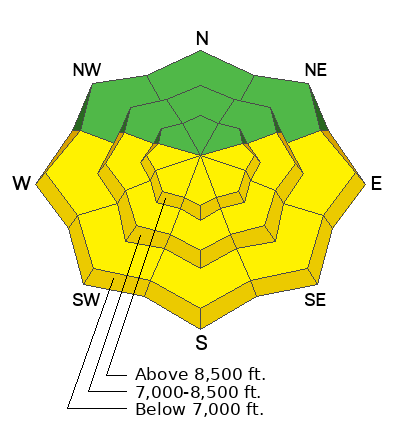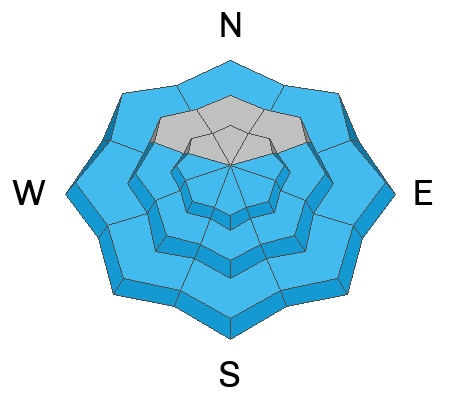Forecast for the Ogden Area Mountains

Issued by Dave Kelly on
Sunday morning, March 17, 2024
Sunday morning, March 17, 2024
The avalanche danger will rise to MODERATE at all elevations facing east-south-west, where it will be possible for humans to trigger wet loose snow avalanches that could lead to shallow wet slab avalanches on steep solar aspects. All other aspects have a LOW avalanche danger.
Dealing with a wet-snow problem is a matter of timing and avoiding being on damp surfaces during the warmest part of the day is the best approach.
Dealing with a wet-snow problem is a matter of timing and avoiding being on damp surfaces during the warmest part of the day is the best approach.

Low
Moderate
Considerable
High
Extreme
Learn how to read the forecast here





